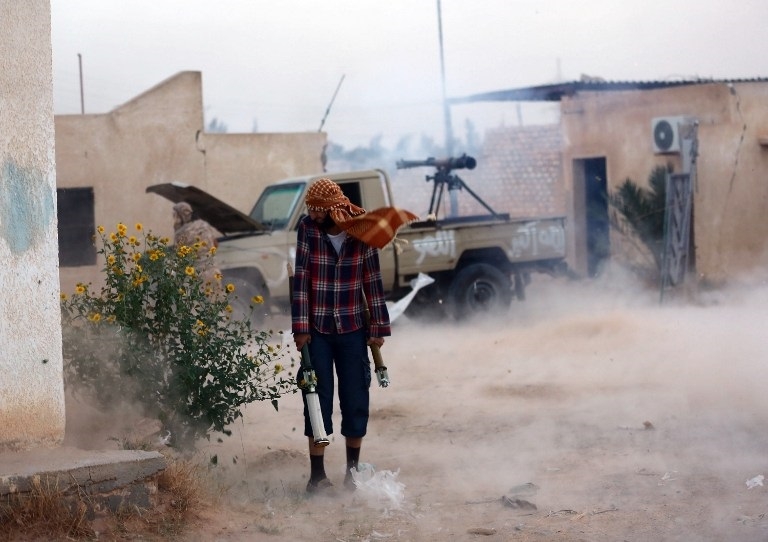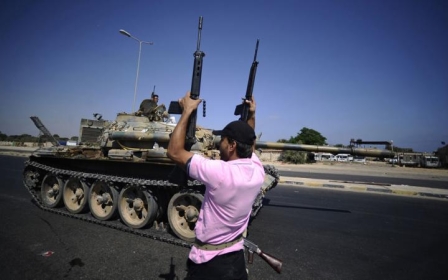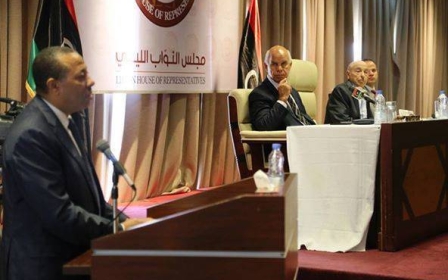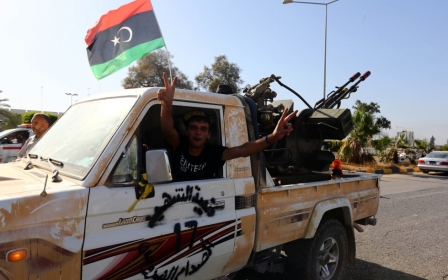UN expects to start Libya-based peace talks today

The UN mission in Libya has invited warring parties in the ongoing conflict to meet on Monday for an initial round of political dialogue.
It is hoped that the talks will help ease tensions and help bring about an end to the fighting and political turmoil that is gripped the country.
"This dialogue would be based on the legitimacy of the elected institutions, respect for the Constitutional Declaration, inclusiveness, respect for Human Rights and international law, and a clear rejection of terrorism," a statement by the United Nations Support Mission in Libya (UNSMIL) said late Sunday.
According to the release, the invitation followed talks between Special Representative of the UN Secretary-General in Libya Bernardino Leon with various parliamentarians, political leaders and various civil society groups over the past two weeks.
"These discussions confirmed that there is a general consensus that the only solution to the current crisis in Libya is through the convening of a political dialogue," the statement said.
Such dialogue should lead to "an agreement on the institutional framework for and a sound consensus on, the modalities for the continuation of the democratic transition process."
The mission set two points for the agenda of the dialogue.
The first was the conclusion of a framework agreement on the rules of procedure of the elected House of Representatives (HoR) as well as an agreement on the critical issues relating to the governance of the country.
"Such key issues would require a qualified majority of 2/3 of the HoR membership to allow for decisions. All decisions of the HoR will be subject to the agreed upon rules of procedure," the release said.
The second point aims to reach an agreement on the date, venue and ceremonial for a handover from the outgoing General National Congress to the recently-elected House of Representatives.
"Agreement on these points will allow for future discussions on the critical issues of governance and the political transition and full normalization of institutions and the country," the release said.
Libya's new parliament recently assumed legislative authority from the General National Congress, the mandate of which expired earlier this year.
However, the outgoing General National Congress reconvened earlier this month, citing a decision by Libyan lawmakers to meet in the eastern city of Tobruk. Critics have accused the HoR of siding with forces allied to rogue general Khalifa Haftar who began a campaign against so-called Islamist militias in eastern Libya earlier this year.
Conversely, the Tripoli-based GNC is often accused of having close ties with the Libya Shield, a collection of largely Islamist inspired militias lead by forces from Misrata that control the capital.
The newly-elected parliament has tasked outgoing Prime Minister Abdullah al-Thinni with drawing up a new cabinet, while the Congress supports another government cabinet headed by Omar al-Hassi.
While the HoR is widely recognised internationally, many in Libya continue to question its right to rule. Previous international attempts to bridge the gap have failed and a Madrid-based crisis conference last week drew ire for not including representatives from the GNC and other opposition elements.
The UN is now trying to address this imbalance and in its statement, the mission said that the UN will start talks with the dialogue participants in parallel to address a number of "confidence-building" measures and security arrangements.
"As a prerequisite, all Libyans must comply with… its call for an immediate and permanent ceasefire," the statement said, unveiling plans to create a joint committee by the Libyans and UNSMIL to supervise the ceasefire.
Other measures, the release said, include agreeing on a timeline for the withdrawal of armed groups from the main cities, airports and other public installations all over the country.
Previous attempts at a ceasefire have so far come to nothing, with the various militias refusing to heed calls to lay down their arms.
Middle East Eye propose une couverture et une analyse indépendantes et incomparables du Moyen-Orient, de l’Afrique du Nord et d’autres régions du monde. Pour en savoir plus sur la reprise de ce contenu et les frais qui s’appliquent, veuillez remplir ce formulaire [en anglais]. Pour en savoir plus sur MEE, cliquez ici [en anglais].




